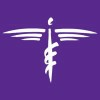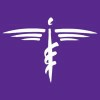The study of the human body is essential in the study of medicine. That’s why individuals who generously donate their bodies to the Body Donor Program at Des Moines University Medicine and Health Sciences play such a critical role in the education of future medical providers.
At its annual Body Donor Remembrance Service on May 4, 2024, DMU honored 46 individuals, 12 of them honored veterans, who donated their bodies to the program to support medical education. The service took place in DMU’s Olsen Center at 3200 Grand Ave.
Speakers at the service included students representing five DMU degree programs and the military, DMU President and CEO Angela L. Walker Franklin, Ph.D., and Donald Matz, Ph.D., chair of the anatomy department. The DMU Chamber Ensemble and Muscle Energy Band performed several musical pieces, and the Army National Guard Honor Guard performed “Taps” during a flag-folding ceremony to honor donors who were veterans. Randal Foster, a DMU simulation specialist, and Jordan Campbell, a first-year osteopathic medical student, performed an instrumental duet.
Paige Sanborn, president of the College of Podiatric Medicine and Surgery Class of 2027, described a value shared by aspiring medical providers and body donors.
“Helping people can mean a variety of different things. It can mean being selfless, willing to sacrifice, having the ability to educate others, or just being a part of something bigger than yourself,” she said. “While these are qualities medical students strive to possess, I would argue that, through their participation in the body donor program, each donor has already demonstrated each of these characteristics. When I think of the kind of physician I want to be, I will always remember the example that was set for me by my donor.”
Patrick Petrosky, president of the Master of Science in Physician Assistant Studies Class of 2025, recalled when he met his “first patient” after his second anatomy lecture. The professor encouraged the students to place a hand on their donor’s shoulder.
“I felt a jolt of energy and emotion radiate up my arm and overcome me from head to toe. What I felt was a true human connection to my first patient,” Petrosky said. “He was helping me, a complete stranger, better my education in a way that nobody else can teach…. That power jolt of emotion and energy is powerful to remember why we’re here — to help other people — exactly what my donor did and wanted.”
Rebekah Warga, president of the Doctor of Osteopathic Medicine program’s Class of 2027, thanked the donors’ families and expressed sympathy for their having “lost someone dear to them.” She assured family members that the donors’ legacy will endure.
“On average, each health care provider in the United States will see approximately 2,500 patients per year. With an estimate of a 35-year career, each provider will see approximately 87,500 patients in their lifetime,” she said. “This year, with 356 students in the anatomy lab, your loved one’s donation will impact the care of over 31 million patients.”
DMU relies on the voluntary donation of bodies for anatomical and surgical study by its students. Donated bodies are indispensable in the training of future physicians and health professionals. As of May 1, 2024, 3,148 people have donated the ultimate gift to DMU since detailed recordkeeping began in 1955. When an individual donates their remains to the program, DMU reimburses a portion of the transportation costs to assist with the overall fees associated with body donation at the funeral home, provides cremation services for the donor’s family and memorializes the donor at its annual remembrance service.
About the DMU Body Donor Program
“Thanks to the incredibly selfless gift made by these individuals, we are able to uniquely educate and train our students in anatomy, as well as educate students from local schools about how to take care of their bodies,” Matz says.
Making arrangements before someone’s death is sometimes uncomfortable to discuss, but planning ahead ensures the body donor’s wish will be fulfilled. For more information about DMU’s Body Donor Program, contact Ed Christopherson, F.D., B.S., body donation coordinator, at 515-271-1491 or bodydonor@dmu.edu, or visit the program’s website.
To memorialize donors, during the winter season the program provides each donor family with a snowflake tree ornament, personalized with the donor’s name, year of birth and year of death, expressing the program’s continued empathy and support through the holiday season. A personalized candle also is given to each family following the remembrance service.
“Donating an individual to our program is a humble decision and an indispensable gift to our medical students. The donors understand the importance of education, and this is why many selflessly give their body for medical education,” Christopherson says. “Providing personalized keepsakes are ways to say ‘thank you’ to the donor’s family.”
DMU also provides a graveside service at Chapel Hill Gardens in Des Moines for families who choose to bury their loved ones in the body donor mausoleum space.
“A graveside service is a time of reflection, remembrance and the unfortunate emotions of finality of a death,” Christopherson says.
In addition, donor families of veterans can request to schedule a graveside service at the Iowa Veterans Cemetery in Van Meter through the body donor program office. Veteran donor families also will have the option to receive a United States flag during the military honors portion of the DMU memorial service, as many veteran donor families aren’t provided a flag at the time of their loved one’s passing.


